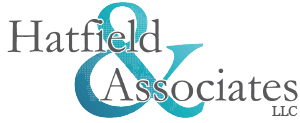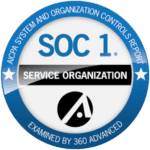In the complex web of logistics and supply chain management, freight audit and payment (FBAP) stands out as a crucial yet often undervalued process.
With the potential to drive significant cost savings and efficiency improvements, the decision between managing freight audits internally and outsourcing to freight bill audit and payment companies is more than just operational—it’s strategic.
In this blog post, we will explore which is the best option for your business.
The Importance of Freight Audit and Payment
At its core, freight audit involves the verification of freight bills to ensure accuracy in billing from carriers. It not only involves checking for overcharges or billing errors but also involves making payments to carriers.
Given the volume of invoices and the intricacies of freight rates, this can become a Herculean task. Yet, it’s critical for controlling costs and improving transparency in logistics operations.
Internal Freight Audit: Keeping It In-House
Pros
-
Control and Visibility: By managing freight audits internally, companies gain direct control over the audit process, which in turn offers them greater visibility into the intricate details and outcomes of their audits. This enhanced oversight can lead to more informed decision-making and improved operational efficiencies.
-
Direct Carrier Relationships: Taking charge of audits internally fosters the development of stronger, more direct relationships with carriers. This closer collaboration can be incredibly beneficial, as it often leads to the possibility of negotiating better terms and conditions, thereby potentially reducing costs and improving service quality.
-
Customized Processes: When companies choose to handle their audit processes in-house, they have the unique opportunity to customize these processes to fit their exact needs. This means they can concentrate their efforts on addressing specific concerns or anomalies, or they can focus more intently on areas that historically show higher rates of discrepancies. Customization allows for a more targeted approach to auditing, which can lead to more efficient and effective audits.
Cons
-
Resource Intensive: Conducting internal audits is a resource-intensive task that demands a significant amount of manpower along with specialized expertise in navigating complex freight contracts and intricate tariff structures. This process can put a considerable strain on the limited resources of many organizations, requiring dedicated teams that are well-versed in the specifics of logistics and contract analysis.
-
Technology Costs: To enhance the efficiency and accuracy of audit processes, many organizations turn to freight audit software solutions. However, implementing these advanced software solutions often comes with a hefty initial investment. Beyond the upfront cost, there are also ongoing maintenance and update costs, which can add up over time, making it a significant financial commitment for any organization.
-
Risk of Errors: Relying on internal teams without extensive experience in audit processes and without the support of sophisticated technological tools can be risky. These teams might overlook discrepancies between billed and actual freight charges due to the complexity of the contracts and the subtle nuances of tariff applications. Such oversights can lead to potential financial losses, as unnoticed errors accumulate over time, affecting the bottom line.
Outsourcing to Freight Bill Audit and Payment (FBAP) Providers
Pros
-
Expertise and Experience: Freight Bill Audit and Payment (FBAP) providers are not just intermediaries but specialists who bring a deep understanding and a wealth of experience in freight auditing and payment processes. They employ advanced techniques and methodologies to meticulously identify billing errors, overcharges, and discrepancies that could otherwise go unnoticed. By leveraging their specialized knowledge, they ensure that companies only pay for the services they have accurately received, safeguarding against financial discrepancies.
-
Advanced Technology: To enhance the efficiency and accuracy of the freight audit process, these providers invest in sophisticated software and technology. This technology not only automates the tedious parts of the audit process but also introduces a level of precision that manual audits can’t match. The use of such advanced freight audit software means that the audit can be conducted with greater speed, reducing turnaround times significantly. Furthermore, the software is continually updated to keep pace with the latest developments in the freight and shipping industry, ensuring that audits are always conducted using the most current standards and practices.
-
Cost Savings: While it might initially seem counterintuitive to pay for outsourcing freight bill auditing and payment services, the reality is that the potential for cost savings is substantial. These service providers are adept at uncovering billing inaccuracies and overcharges, which, when corrected, can lead to significant net savings for companies. Additionally, by transferring the operational responsibility of freight auditing to a specialized provider, companies can alleviate the workload on their internal staff. This shift allows employees to redirect their focus towards core business activities that drive growth and profitability, rather than getting bogged down with complex audit processes. The holistic approach taken by FBAP providers not only optimizes financial expenditures but also enhances operational efficiency within the company.
Cons
-
Less Direct Control: When companies outsource, they hand over a certain degree of direct oversight and control to external parties. This shift can be unsettling and may lead to discomfort for businesses accustomed to maintaining tight control over every aspect of their operations.
-
Potential for Oversights in Company-Specific Needs: Freight Bill Audit and Payment (FBAP) providers are well-versed in their domain, possessing broad expertise in auditing and payment processes. However, despite their proficiency, they may not fully grasp the unique requirements or subtle intricacies of each client company’s freight auditing needs. This gap in understanding could lead to oversights that might not align with the specific expectations or standards of the client.
-
Cost of Services: On the surface, outsourcing presents an opportunity for businesses to achieve cost savings in the long run by leveraging the specialized skills and efficiencies of external providers. Yet, the initial expenditure involved in engaging these outsourcing services can act as a barrier, particularly for smaller businesses or those with tight budget constraints. The upfront cost may be seen as a significant investment, and companies must weigh this against the potential for future savings and efficiency gains.
Making the Decision
The choice between conducting freight audits in-house or outsourcing hinges on several factors:
1. Volume and Complexity of Freight Invoices: Companies that deal with a high volume of complex freight invoices stand to gain significantly from outsourcing this task. Specialized firms possess the expertise and tools necessary to manage the intricacies of these invoices efficiently, ensuring accuracy and compliance with regulations.
2. Available Resources: For organizations that have limited staff capacity or lack specialized knowledge in managing freight invoices, outsourcing presents a more viable solution. It allows them to leverage external expertise without the need to invest in extensive training or hiring of new employees.
3. Technology Infrastructure: Companies that already possess advanced audit and invoice processing software or those that are prepared to make significant investments in technology, might find it more beneficial to keep the process in-house. This approach allows them to maintain direct control over the auditing process and potentially benefit from a quicker return on investment.
4. Cost Considerations: Although the initial costs of outsourcing freight invoice processing can be higher, the decision to outsource should also take into account the potential long-term savings. These can come from reduced discrepancies, fewer errors, and more efficient processes. Additionally, outsourcing can free up internal resources to focus on core business activities, potentially leading to increased productivity and profitability.
Conclusion
Whether you choose to manage your freight audit and payment internally or outsource to an FBAP provider depends on your company’s specific circumstances, needs, and strategic direction. Both options offer distinct advantages and potential drawbacks.
The goal is to significantly reduce costs, increase accuracy, and enhance operational efficiency in your freight logistics processes.
In navigating this decision, it’s essential to conduct a thorough analysis of your company’s operational capabilities and the potential benefits an FBAP provider could bring.
Remember, the ultimate aim is not just to reduce freight costs but to optimize your overall supply chain and logistics operations for long-term success.
Are You Ready To Maximize Your Savings And Enhance Your Supply Chain Efficiency?
Hatfield & Associates LLC specializes in providing comprehensive Freight Audit and Payment services that streamline your logistics operations.
Our team of experts is equipped with the latest technology and deep industry knowledge to identify billing discrepancies, ensure accurate payments, and uncover cost-saving opportunities.
Don’t let the complexities of freight audits distract you from your core business. Contact us today to learn how we can tailor our services to meet your unique needs and take the first step toward optimizing your freight and logistics strategy for success.


